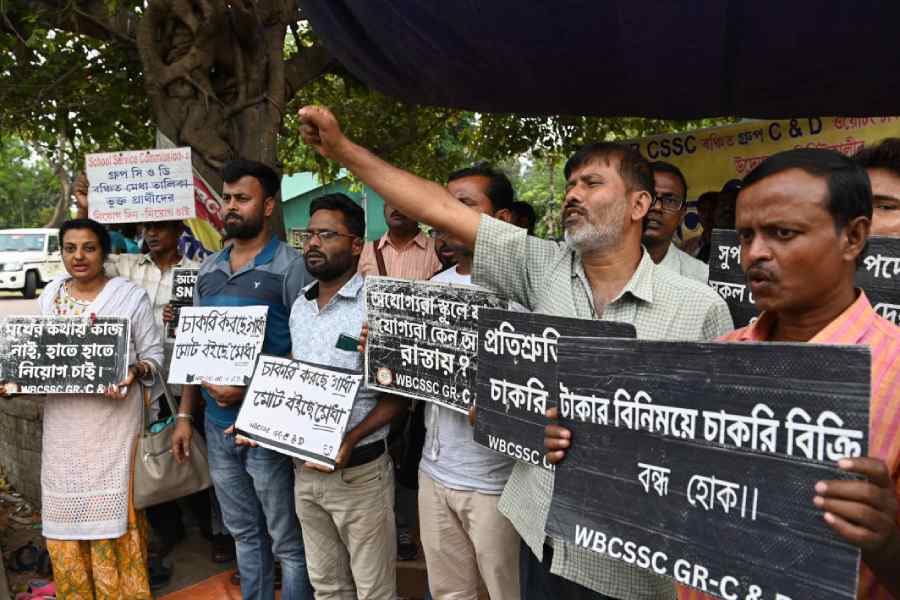The Supreme Court on Monday stayed Calcutta High Court's directive for a CBI probe against Bengal government officials for creating supernumerary teacher posts as part of the recruitment scam, while acknowledging "fraud" in the appointment process.
However, it refrained from staying the operation of the entire high court judgment, which quashed the recruitment process and sacked 25,000-odd teachers and other school staff, while agreeing to hear the matter again on May 6.
The bench, headed by Chief Justice of India D.Y. Chandrachud, orally observed that prima facie, even people not on the panel (merit list) were recruited.
"Please, look how it is done! The OMR sheets are completely destroyed. People not in the panel of selected candidates are recruited. Well, that's a complete fraud," the bench, which included Justice J.B. Pardiwala and Justice Manoj Misra, said.
The comments were aimed at senior advocate Rakesh Dwivedi, representing the state government, and senior advocate Jaideep Gupta for the West Bengal School Service Commission.
Dwivedi complained that the high court had set aside the entire appointment process when the CBI had found irregularities only in 8,000 cases. Besides Gupta, he was supported by former attorney-general Mukul Rohatgi and senior advocate Dushyant Dave, appearing for some of the aggrieved candidates.
The Bengal government and the others argued that the high court's blanket order against the entire recruitment process, because of possible irregularities in some of the appointments, violated the principles of natural justice.
Chief Justice Chandrachud then observed: "You have to demonstrate that… on the basis of material available, it is possible to segregate who all are validly and invalidly appointed; who are the beneficiaries of the frauds."
He added: "When you say, 'It is 25,000 posts, it is a big number', we agree that 25,000 jobs taken away is a serious thing. Unless we see that the entire thing is fraught with fraud."
The Bengal government pleaded for a stay on the entire high court judgment but the apex court said it was only staying the portion that directed the CBI to probe the conduct of government officials in creating supernumerary posts.
The Bengal government had contended that the wholesale sackings would create a "huge vacuum in state schools", bringing "the education system (to) a standstill".
In its appeal filed through the Bengal standing counsel, Astha Sharma, the state complained the high court had erroneously directed those appointed from outside the panel or after submitting blank OMR sheets to return by four weeks all the pay and benefits they had received.
The high court said these (now sacked) appointees must also pay a 12 per cent annual interest on the sum, calculated from the date of receipt to the date of deposit.
"…The Hon’ble High Court, basis oral submissions, without any affidavit on record, has proceeded to in a cursory manner, direction to cancel all appointments of teachers and non-teaching staff, in utter disregard to the fact that the same will lead to a huge vacuum in the state schools, unless new selection process is completed by the SSC, especially when the new academic sessions is on its brim, leading to the students being adversely impacted," the state government said.
It said the high court judgment violated the Supreme Court ruling in Inderpreet Singh Kahlon and Others vs State of Punjab 2006, which said there cannot be any cancellation of the entire selection process over irregularities in some appointments.
"However, the Hon’ble court has instead of separating the grains from the chaff… proceeded to paint the entire selection process with the same colour of irregularity, leaving the State Govt. as the authority responsible to maintain the teacher-pupil ratio in schools in a precarious position," the state said.










